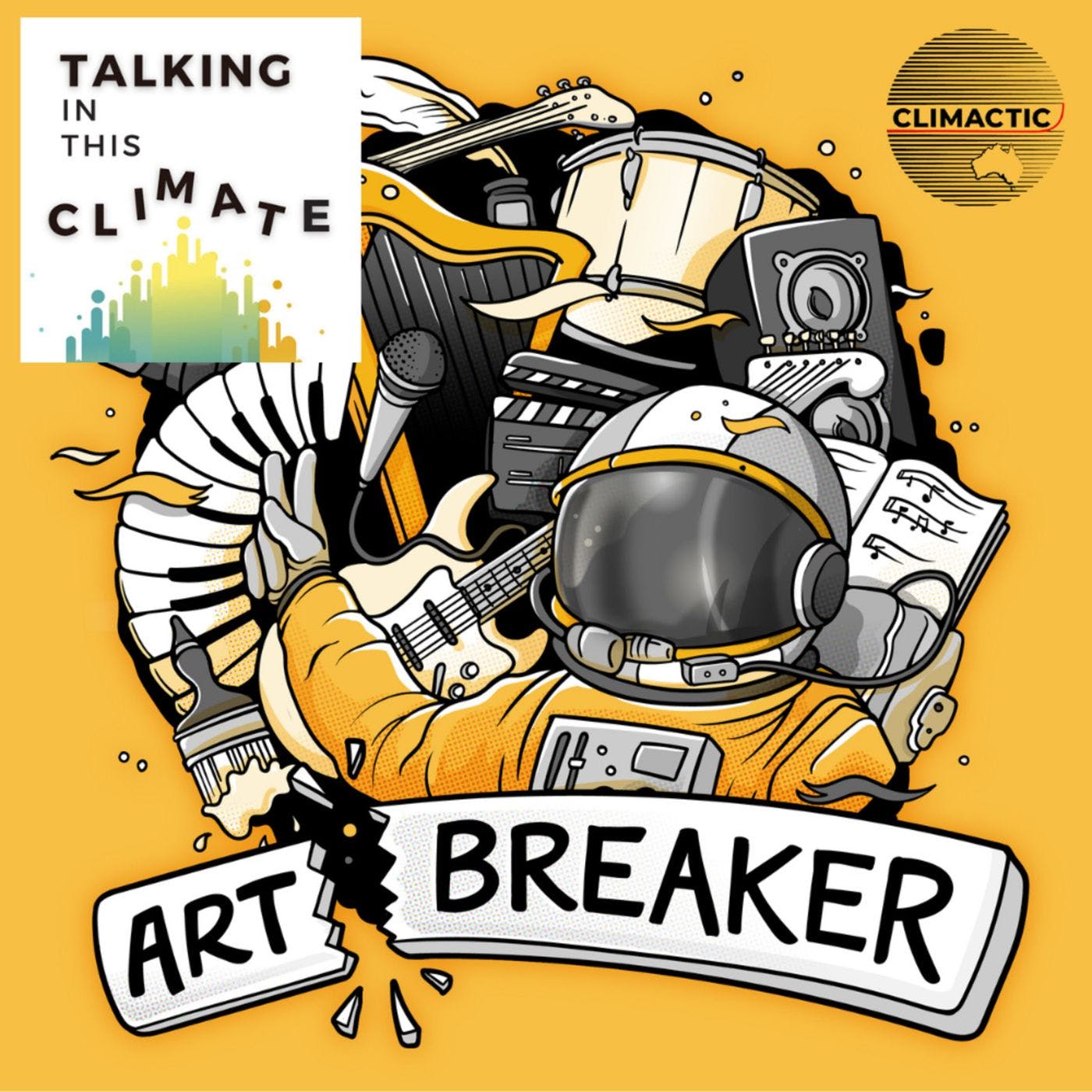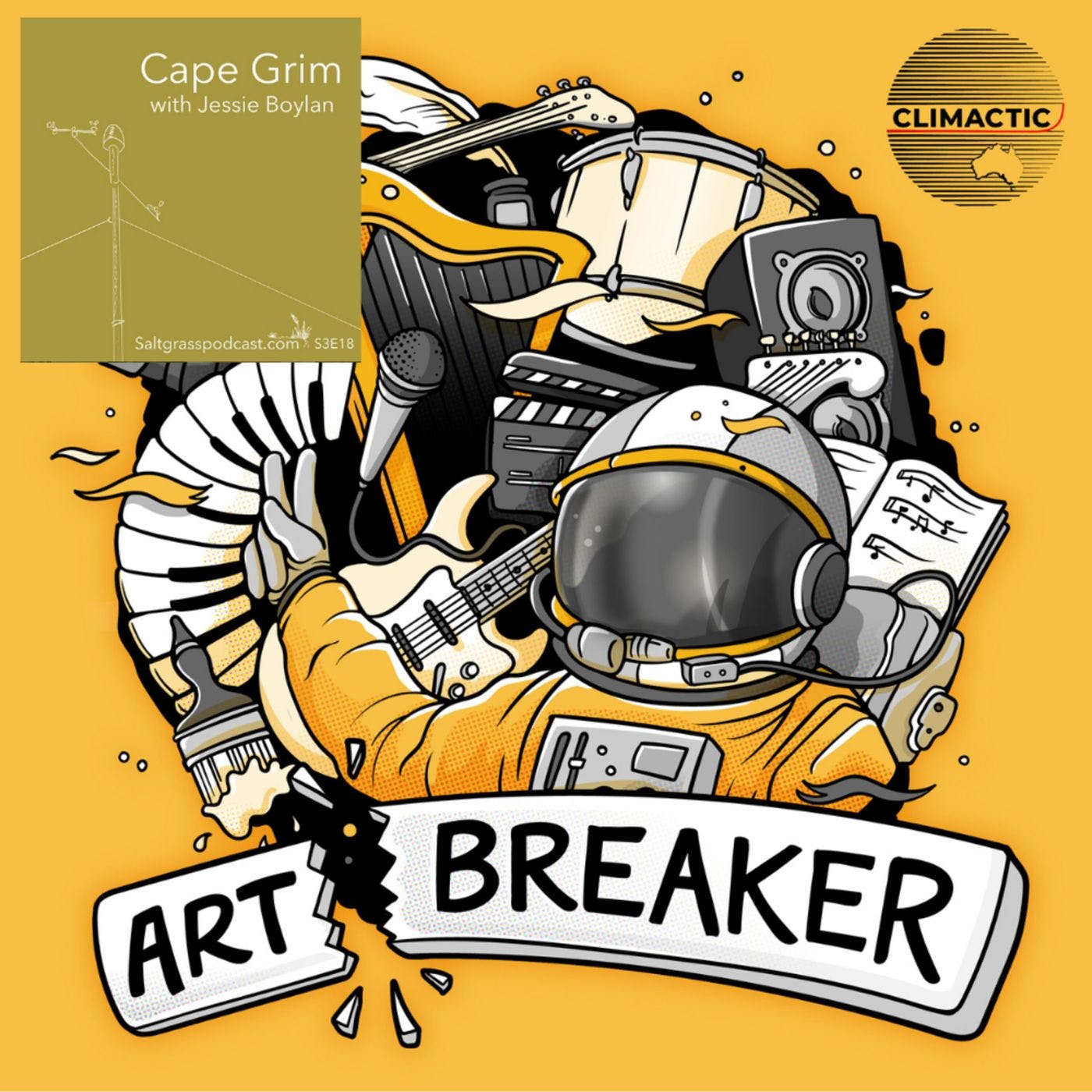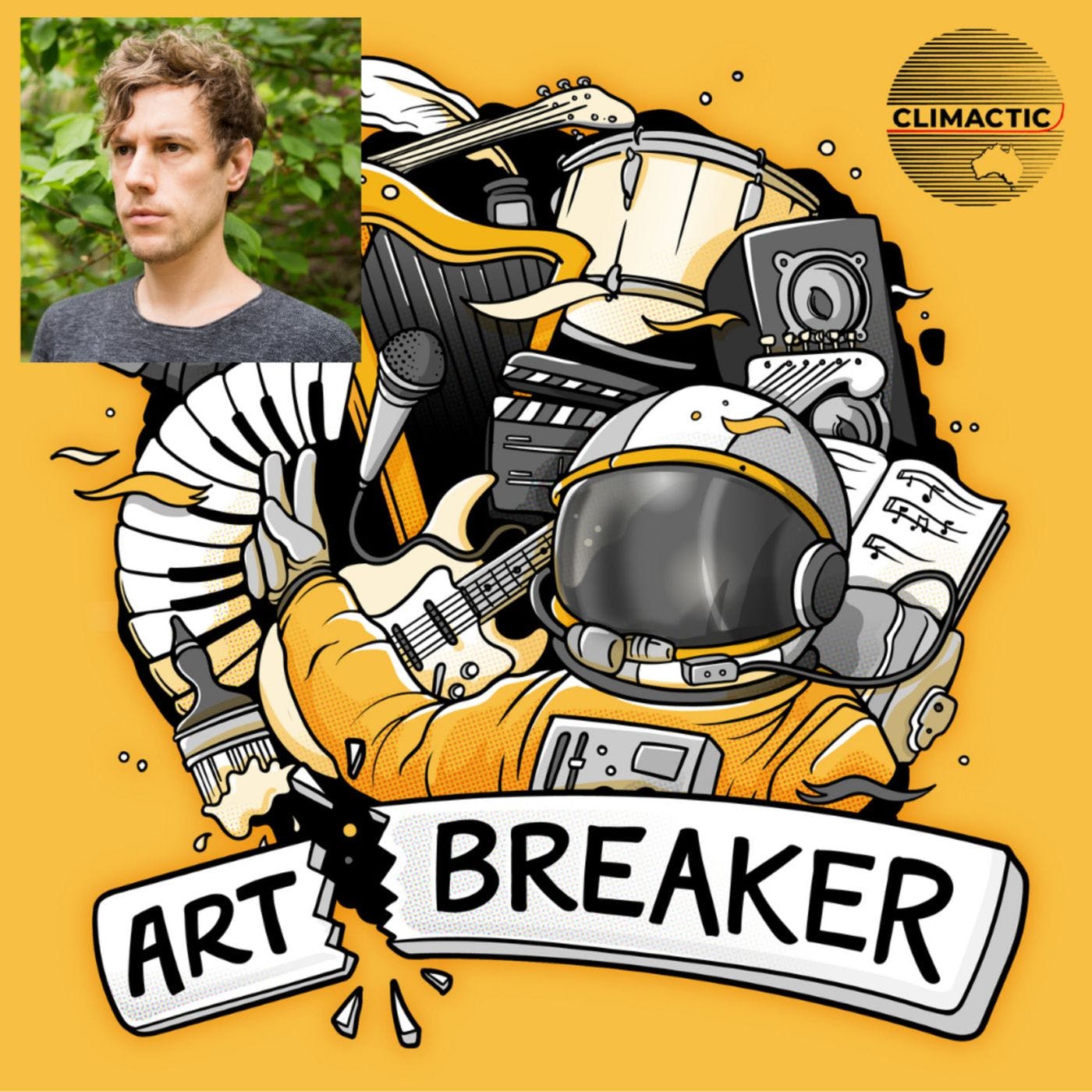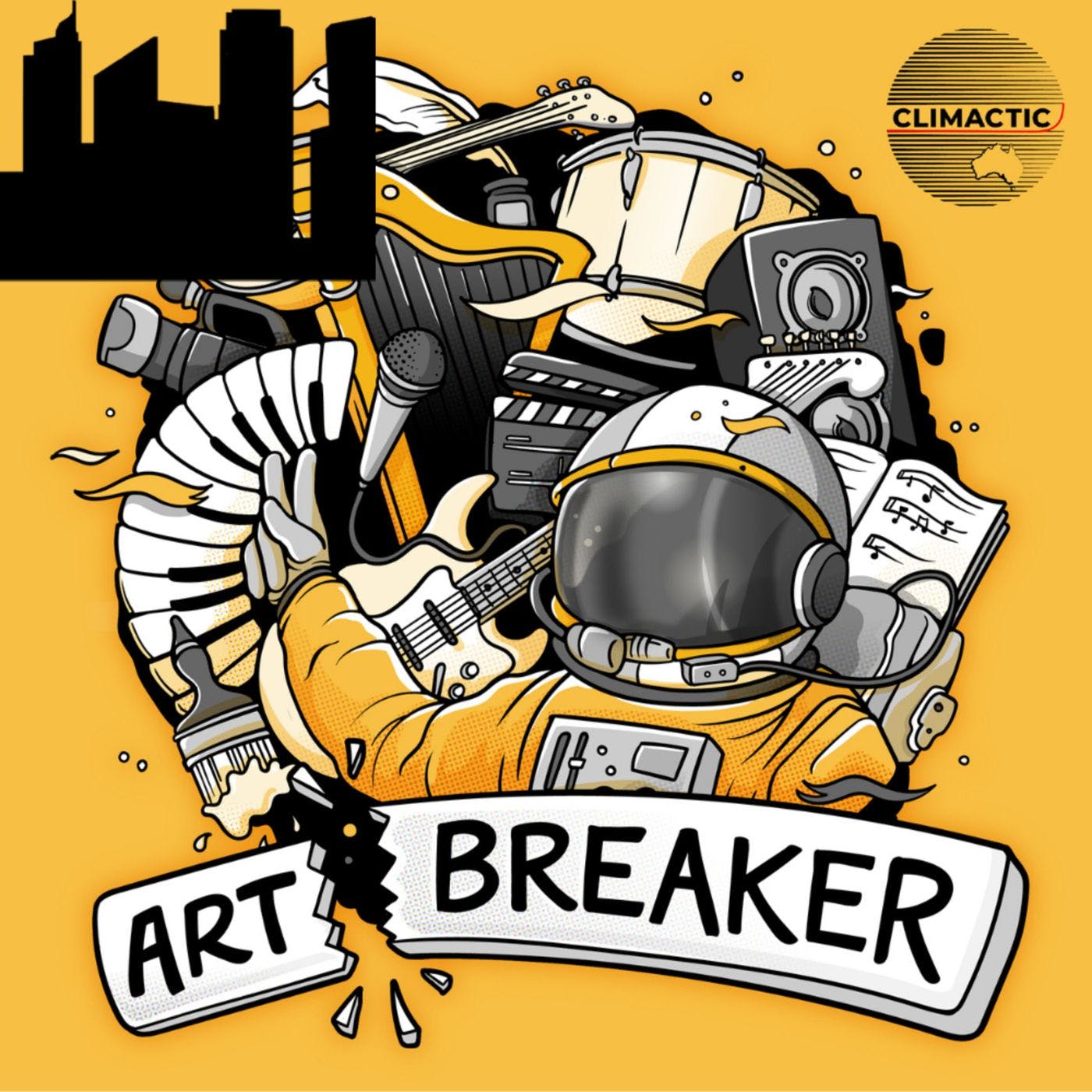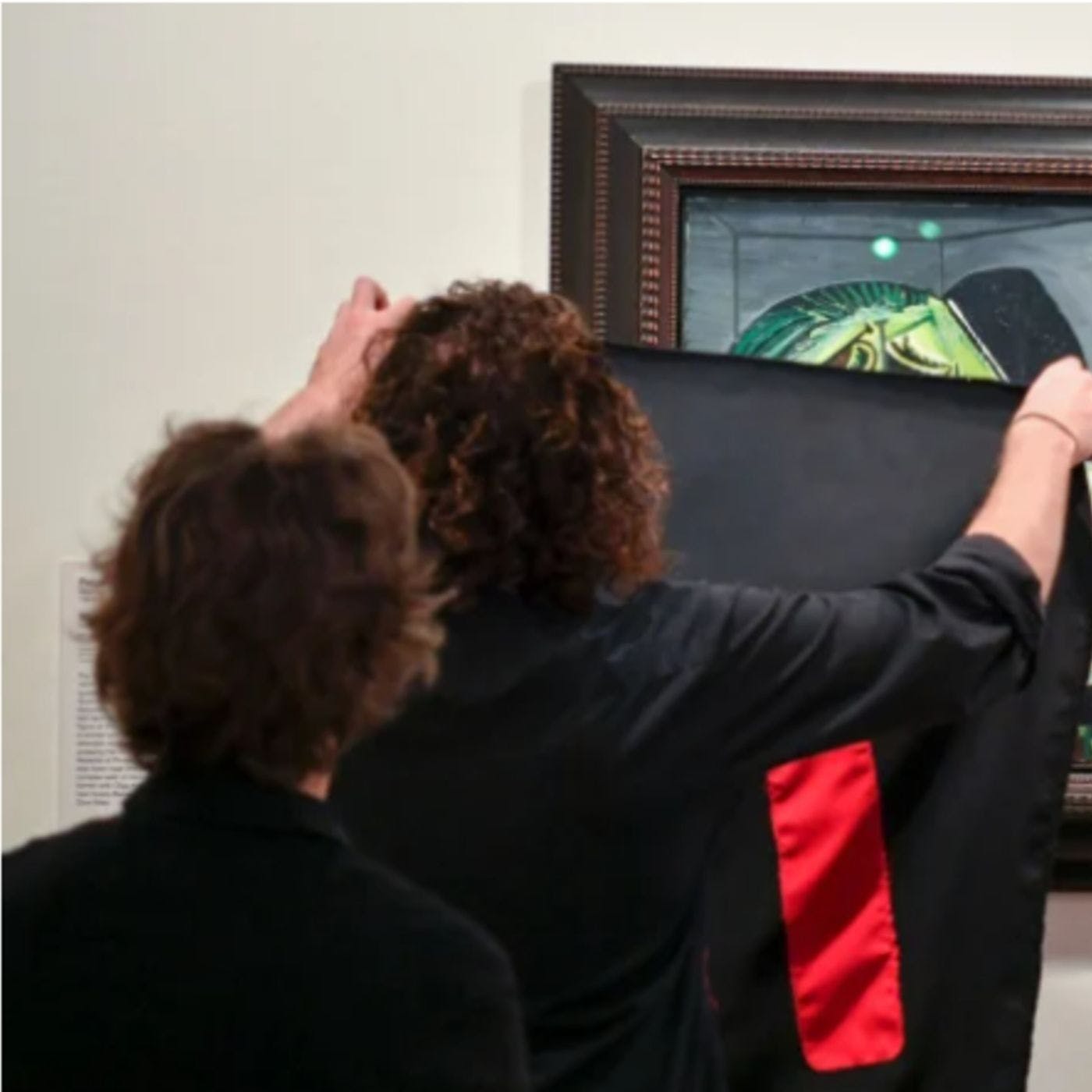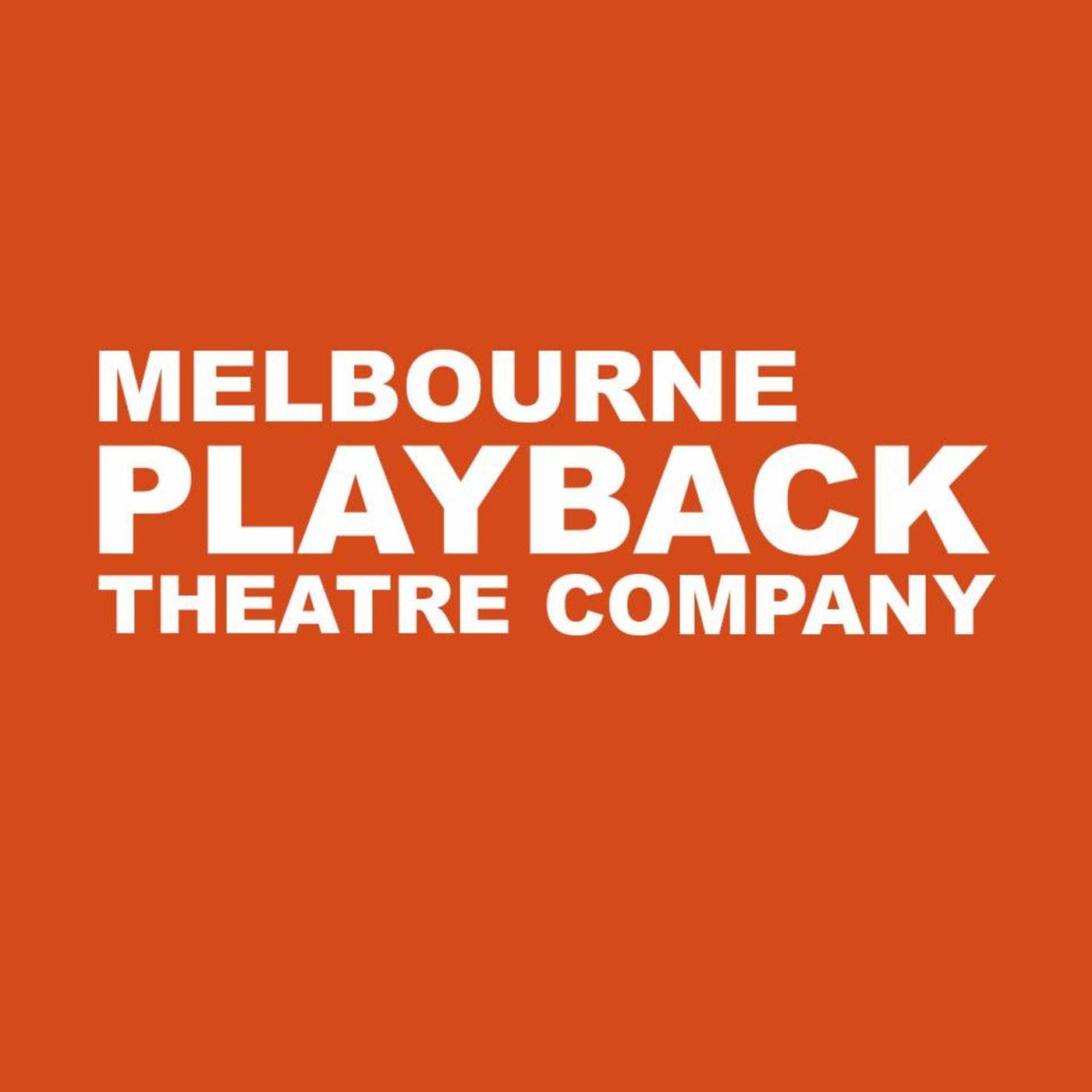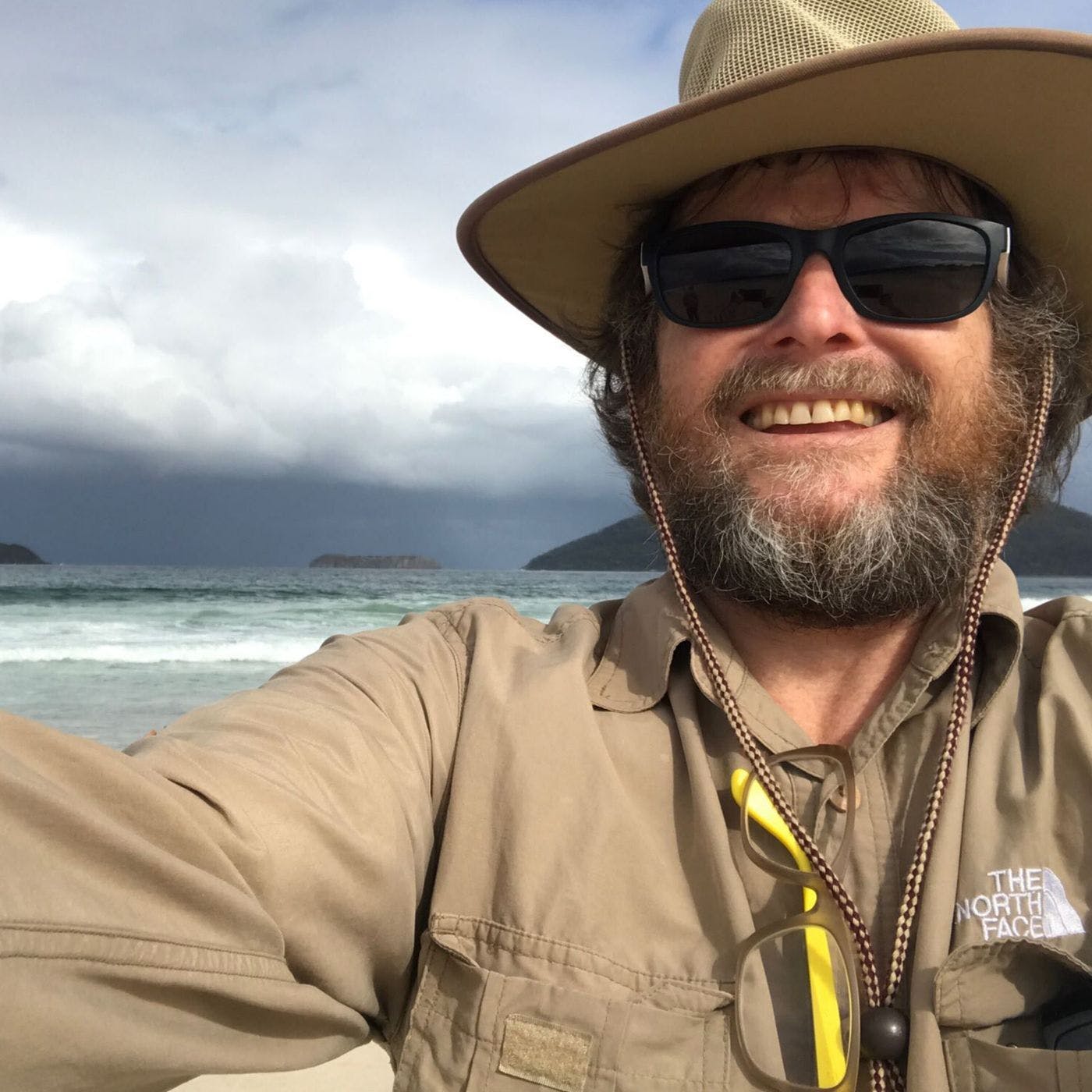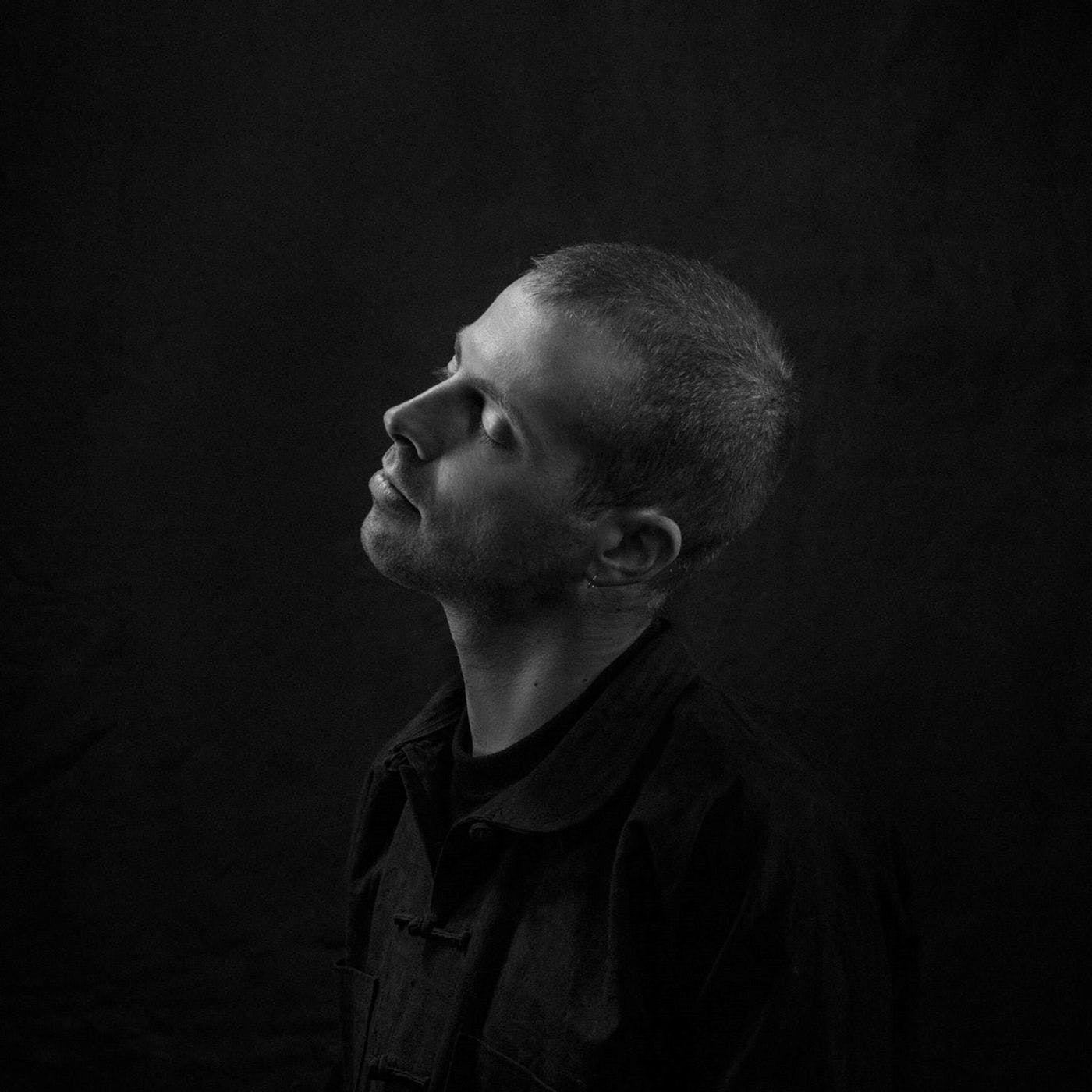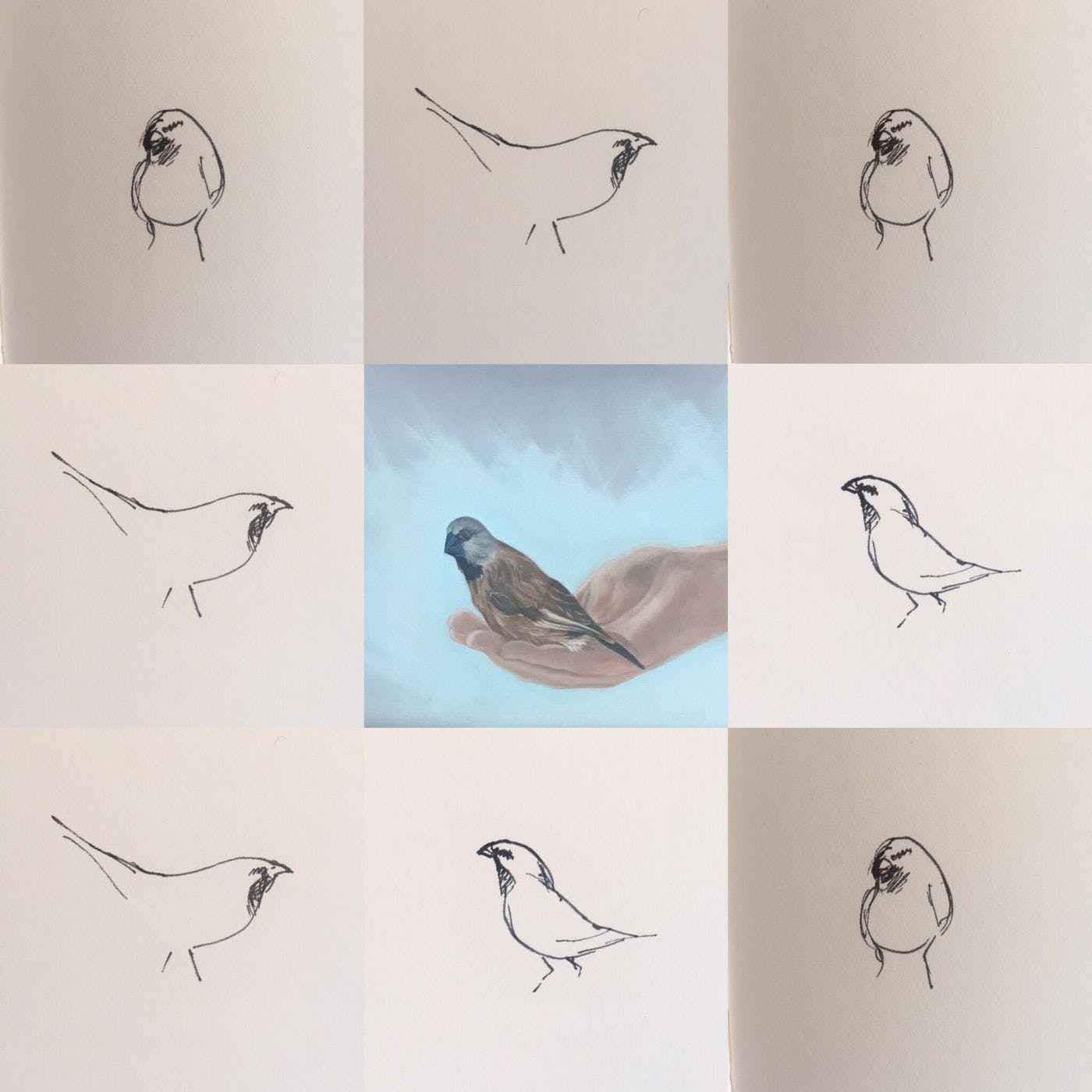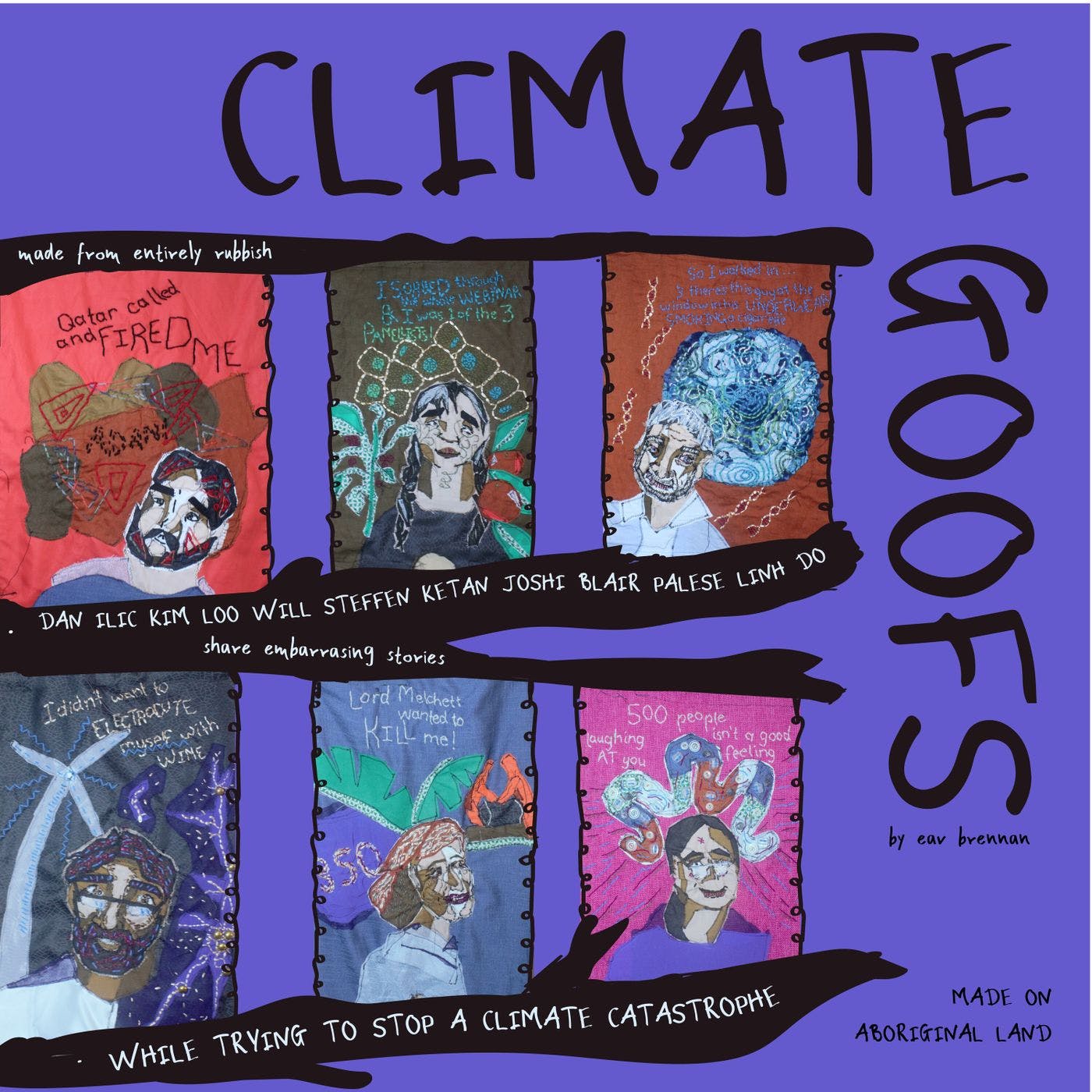Discover Art Breaker
Art Breaker

Art Breaker
Author: Mark Spencer
Subscribed: 1Played: 2Subscribe
Share
© Copyright 2023 Mark Spencer
Description
These are climactic times; the Climate Crisis, the Biodiversity Crisis, Sixth Mass Extinction... The Anthropocene. So how is this affecting the art we're making in our society, and how can that art be part of a response, or even a solution? Join us as we explore music, prose, poetry, visual art and more, and learn how the art we love is made, and why.
15 Episodes
Reverse
Can music, film, literature and art inspire climate activism or change our perspectives on climate change? In this episode, we discuss non-academic examples of climate change communications.Arguably, pop culture can have as much, or perhaps even greater, impact than academic literature on getting us to think differently about climate change and the world that we live in. In preparing for this episode we each shared a short film or a piece of music that has had an impact on us and how we experience environmentalism. We encourage you to take a look at our playlist and feel free to share your own examples of non-academic climate change communications on our Facebook page!Our discussion in this episode focuses on two examples from our playlist: The first one is Yurala, a track by Marliya Choir (who are a part of Gondwana Choirs, forming a part of Spinifex Gum – a collective of voices led by Felix Riebl from The Cat Empire.) and the second one is Carbon Whore, a short film produced by the Youth Disability Advocacy Service in 2010.Follow this link to listen to our playlist: https://www.youtube.com/playlist?list=PLjy7CI8OhkWrmiUxc44CgsgQT88cxiRiNRecorded 14 June 2021.Join the Facebook group to comment, ask questions and provide feedback: http://bit.ly/3vMZZCLSupport the show: https://climactic.com.au/support/ See /privacy for privacy and opt-out information.
This is an episode of Art Breaker, find the show and all episodes here.But this is also a guest episode, adapted from Saltgrass, a podcast and radio show on Main FM, and the work of Alison Hanley.Jessie Boylan is a PhD candidate at RMIT's School of Art. She has work in the upcoming Castlemaine State Festival called The Smallest Measure. Her thesis and upcoming art installation has taken her out to the wilds of a remote outpost at the edge of Tasmania… to a place called Cape Grim where there is a science lab that tests the air coming in off the ocean there. Without land or human habitation for hundreds of kilometres, the air blowing in off the ocean to cape grim is considered the best air in the world to get base measurements of our atmosphere, including carbon and other green house gasses. This data is vital in our understanding of global warming. How does an artist depict the science of climate change? Listen to this episode to find out.Thanks to Tom Day for music used in this and other Climactic Collective episodes.Special thanks to Matt Wicking for the use of the music of the General Assembly. Listen to Cape Grim here, from the album Vanishing Point. To get in touch with us, to contribute to the show or offer feedback please get in touch at hello@climactic.fmSupport the show: https://climactic.com.au/support/ See /privacy for privacy and opt-out information.
Lloyd Richards bring this interview and audio doco about artist Tom Day to Art Breaker.Tom Day is a solo artist residing in Main Ridge, Australia and has been creating ambient and electronic music since 2005. Characterised as “effortless and raw”, Tom's tracks couple elegant beats and piano melodies to an array of personally-collected field recordings, his style alternating between promising swells and restful plateaus.Having grown up on a farm on the Mornington Peninsula, Tom is strongly influenced by the ocean beaches and natural openness of his hometown. Other influences include cinematic scores by Alan Silvestri, Jóhann Jóhannsson, Thomas Newman, John Barry & John Williams, as well as pioneering electronic artists such as Moby, Daft Punk, Brian Eno and The Chemical Brothers.The music of Tom Day has been used in independent film and documentaries from around the world, with clients including National Geographic, Volvo, New York Times, Momondo, Holden, Juice Media, GetUp and Tourism Victoria. Having worked on an array of joint projects with other musicians and visual artists, Tom is deeply drawn to the synthesis of sound and image. Links:Tom DaySongs:FlemingtonHowquaSoutherlyCredits:Host | Lloyd RichardsMix/Master | Lloyd RichardsSupport the show: https://climactic.com.au/support/ See /privacy for privacy and opt-out information.
End Game, the hyperlocal audio project from the Mount Alexander Shire in central Victoria, centered on the town of Castlemaine, is impactful storytelling on people as they engage with the reality of climate change. Climate change is a communications problem, not a science problem - as David Attenborough has recently said. And End Game is engaging with how we feel about climate, how we ourselves change in the face of change. Links:End GameClips:Bubbling away and risingWhen you know a placeHighly StrungEverything you hold dearCredits:Host | Mark SpencerMix/Master | Mark SpencerSupport the show: https://climactic.com.au/support/ See /privacy for privacy and opt-out information.
How long until you answer the call? In this Art Breaker mini we discuss the newly released track "The Call" by Echo, multi-instrumentalist artist Mark Conroy. We explore his paired roots in music and activism, the inspiration for this track, and how joining a group of fellow artists who've committed to releasing new work every week has spurred him through the Melbourne lockdown. Listen to Mark's work on his Soundcloud. Know a creative with a great story to tell? Drop us a line, or even better, work with us to tell it!Get in touch at hello@climactic.fm. Support the show: https://climactic.com.au/support/ See /privacy for privacy and opt-out information.
What's the Grot? Or, what happens to form The Grot?A barely recognisable, muddy dystopia of a future? Or, a near at hand present with just a slap of mud and touch of humour?Eav Brennan explores graphic novel The Grot with author Pat Grant, and get into why he made it, what it reflects, and what he hopes you take away from it.You can already read it for free on his site, so get the director's commentary here while you're at it, you beautiful cheapskates!Links:Pat GrantThe Grottiest Book Launch!Clips:Sydney Morning Herald - 'There's nothing to celebrate': Cronulla Riots 10 years on2040 - Seaweed Crowdfunding CampaignElysiumCredits:Host | Eav BrennanHost | Mark SpencerMix/Master | Seán MarshMusic/Production Assistance | Lloyd RichardsSupport the show: https://climactic.com.au/support/ See /privacy for privacy and opt-out information.
There are many members of our community who at the start of 2020 called themselves artists. Some were working artists, funded by their work, by grants, by exhibitions funded by companies - all imperfect in their own individual ways.Most of those artists will no longer be funded when you hear this. Pandemic, recession, and government decision has and will cause a reaping of the arts community. Artists will have to turn their hand to other things for paying work. But will they cease to be artists? Will they cease to have a voice?Gabrielle de Vietri shares her story of the 2014 Sydney Biennale, her excitement on being selected, her two years preparing her work, the bitter pill of learning of the event sponsorship and its connection with the Manus and Nauru detention camps. Her decision to retract her work, and what it says about the power of art that the decision to not show it possibly achieved more than the art itself ever could. Artbreaker is a program dedicated to the arts community as it faces and is affected by the climate crisis, and the 2014 Sydney Biennale Boycott was just one dramatic example of this. If you're a working artist, former artist, or a creator not comfortable with the artist label, we'd love to hear from you and work to adapt a story for the show. Credits:Gabrielle de Vietri - https://www.gabrielledevietri.net/Marty Gallagher - https://echidnaaudio.com/Mark Spencer - www.climactic.com.auJacob Richards/Puscha - https://puscha.bandcamp.com/Bronwyn Johnson and Catriona Black-Dinham - Climarte
Climate Emergency. What can one do?Presented as part of the Sustainable Living Festival, Melbourne Playback Theatre Company in collaboration with Climate for Change are hosting an evening of conversation and performance - sharing stories, knowledge, and empowering action.Part workshop, part improvisational performance, The Power For Change will recap the climate science, offer a pathway for change and use the power of playback theatre to deepen the conversation. Audience reflections and stories about our individual and collective response to climate change will power the creation of theatre, and inspire ongoing action after the event.The night will provoke the mind, nourish the heart, and, ultimately, motivate meaningful action.Recorded by Fien Van Den Steen - check out her blog at https://finfinnews.com/Support the show.Support the show: https://climactic.com.au/support/ See /privacy for privacy and opt-out information.
Beth Spencer in conversation with Kit Kelen about his creative practice as poet, artist, publisher, collaborator, academic, mentor, musician and blogger. Kit reads selections from some of his many books intercut with original guitar tracks.They discuss Holden cars, bushfires, coal-addiction, and the role of place in his work -- as a writer who uses a lot of Australian idiom, colloquialisms and reference to landscape in his poetry, and who has also been widely translated.The process and benefits of translation, the role of habits and doodling, the disruptive power of humour in creative and political practice, and the importance of community and friendship.Links: The Daily Kit blog - www.thedailykitkelen.blogspot.com www.kitkelen.com - art and writingSupport the show.Support the show: https://climactic.com.au/support/ See /privacy for privacy and opt-out information.
Jacob Richards performs as Puscha, delivering durational music performances across festivals and venues in Victoria and as far afield as Mongolia. You'll learn Jacob's approach to modular synthesis, how to craft the perfect modular synth for live performance, the muse that is months at sea in the Southern Ocean, and how love of nature and fear for it's safety and integrity drives the music. In this episode you'll hear and explore four tracks, but you can hear more on Soundcloud, and stay up-to-date with live acts on Facebook. . Support the show.Support the show: https://climactic.com.au/support/ See /privacy for privacy and opt-out information.
The Black Finch Project, or #1000finches, swept through the Australian art and environmental world in mid 2019. People of all walks of life were creating art featuring this endangered finch, usually dead, and posting them to politicians and community figures across Australia. That same bird is now Australia's Bird of the Year, while it's habitat is being destroyed to clear the way for the development of the Galilee Basin as the world's newest and largest coal exporter. How can art help us engage and cope with this tension? The grief of extinction?---Thank you for listening to Art Breaker. We're the newest show from the Climactic Collective, a podcast network by and for the Australasian climate community. If you liked the program, please tell a friend, and leave a rating and review in your podcast app or Apple Podcasts if so moved.Thanks to Charlotte Watson for her time and generousity. Since that tumultuous time in mid 2019, her life has somewhat returned to normal, and she's moving to a plant-based diet.Chris Turnbull is still campaigning against Adani, and raising his son. If you wanted advice on how to run a bird of the year campaign, he'd be a good man to ask.Margaret Ingles is still prolifically working on the intersection of the climate emergency and our understanding, and her work has moved your host to tears on multiple occasions.Our thanks to Miles Martignoni and Laura Murphy-Oates from the Guardian, and Sean Dooley from Bird Life Australia for the use of a section of the Full Story podcast from the Guardian Australia.Thank you for listening, and if you know of an artist or a project, in any artistic medium, engaging with the climate emergency that's a good story waiting to be told, please get in touch at hello@climactic.fm.Support the show.Support the show: https://climactic.com.au/support/ See /privacy for privacy and opt-out information.
Dr Jen Rae is a provocateur and artist, who uses food as a way to talk about the nature of the climate crisis, and to start preparing for disasters to come. Her recent event, Recipe for Disaster, took it's participants into a bunkerlike space to talk about the food we eat, and what it tells us about ourselves, and an approaching future.We talk to her about pulling off the event, while taking you to it, and prying apart what it meant. Bon appetit. Support the show.Support the show: https://climactic.com.au/support/ See /privacy for privacy and opt-out information.
Award-winning author James Bradley joins us to dissect Clade, his climate fiction novel, share readings, and the power of fiction to convey the realities of the climate crisis. Support the show.Support the show: https://climactic.com.au/support/ See /privacy for privacy and opt-out information.
The top song about 2022 is called Heat Waves, by UK band Glass Animals. But, is the song about the record-breaking heatwaves that are becoming the new normal in our time of the Anthropocene?You'll find out, in this episode of Art Breaker - the podcast that covers the intersection of the arts and climate change.You'll hear excerpts from two of the best music podcasts in this episode, linked below:Hit Parade - Hits of the Year EditionSong Exploder - Glass Animals
This episode is an interview from climactic member and artist Eav Brennan. Eav's spent the last year interviewing some climate leaders and making upcycled portraits of them. In this episode, Mark and Eav run through the portrait subjects and the stories that stuck with Eav, as well as touching on the long history of textile art as a medium of social change.MusicDig the Uke by Stefan Kartenberg (c) copyright 2016 Licensed under a Creative Commons Attribution Noncommercial (3.0) license. http://dig.ccmixter.org/files/JeffSpeed68/53327 Ft: Kara SquareFor more on Eav's work check out her instagram @eavrose or her websitehttps://www.thesecondattempt.comThis project was supported by the Creative Power Award. Support the show: https://climactic.com.au/support/ See /privacy for privacy and opt-out information.


